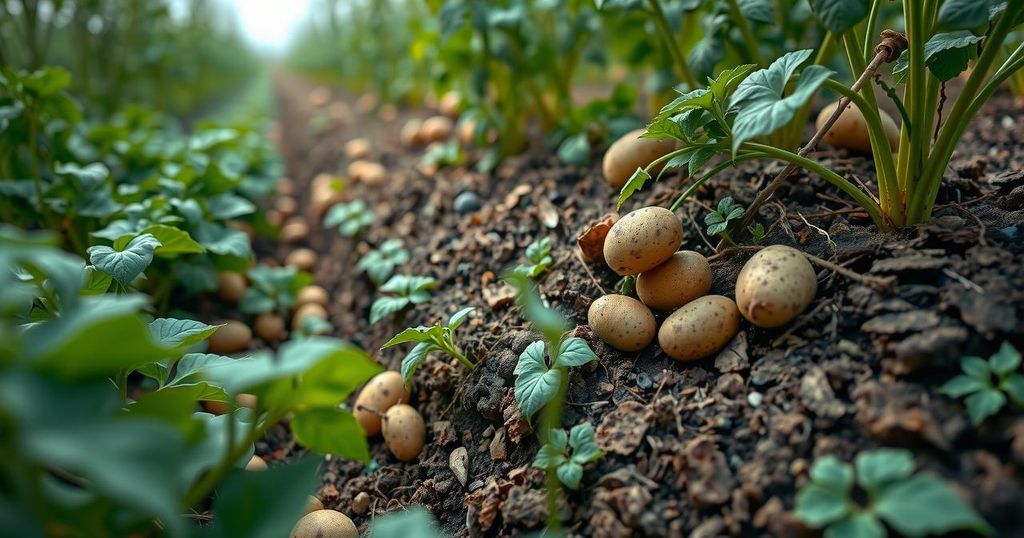Researchers in China have found that rising temperatures due to climate change can halve potato yields. The study led by Dr. Li Jieping involved simulating future temperature conditions and revealed that yields decreased significantly despite quicker growth. These findings underscore the need for farmers to adapt their practices to mitigate the effects of climate change, which threatens food security and farmer income.
In light of rising global temperatures due to climate change, researchers in China are examining the impact on potato yields, a critical aspect of food security, given that China is the largest potato producer worldwide. Led by molecular biologist Li Jieping, a study was conducted to simulate conditions reflecting projected future temperatures, resulting in potato sizes significantly smaller than average. Over a three-month growth period, with temperatures set three degrees Celsius above current averages, yields were found to decrease by more than half despite accelerated early growth.
As climate models project an increase of up to 3.1 degrees Celsius by 2100, it is imperative for farmers to adapt their cultivation practices within the next decade. Suggested adaptations include planting earlier in the spring and relocating farming operations to higher altitudes where cooler temperatures might prevail. The study underscores not only the effects of heat but also the challenges posed by increased humidity, pressuring farmers to harvest before rainfall and seek resilient potato varieties.
Collaboration between the International Potato Center, headquartered in Lima, and the Chinese government aims to equip farmers with the necessary tools to navigate the adverse consequences of climate change, particularly those driven by fossil fuel emissions. The urgency of these adaptations highlights the potential for significant economic repercussions should yields decline significantly, affecting not only farmers’ incomes but also potato prices for consumers.
The study conducted by molecular biologist Li Jieping and his team at the International Potato Center in Beijing emphasizes the implications of climate change on agriculture, especially the cultivation of potatoes. As a staple crop, potatoes are essential for food security, particularly in China, which accounts for over 22% of global potato production. Projections indicate that temperatures could rise significantly by the end of the century, necessitating immediate and effective adaptation strategies to mitigate adverse impacts on crop yields. The research focused on some of the most commonly grown potato varieties in northern China and aimed to understand how higher temperatures and increased humidity will affect their growth and yield.
In summary, the findings from the study led by Dr. Li Jieping highlight a pressing need for adaptation strategies in potato farming amid climate change. As temperatures rise, the size and yield of potatoes are forecasted to decline, placing a significant burden on food security and farmer livelihoods. It is essential for farmers to adopt innovative practices swiftly, while researchers and governmental organizations collaborate to facilitate these changes, ensuring sustainability and economic viability in potato production moving forward.
Original Source: www.outlookbusiness.com







